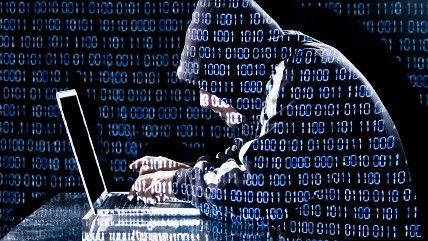Did Russia Really Affect the Election Through 'Hacking'?
"Hacking" and "leaking" are two different things, and the distinction is significant.


Earlier this week, leaders of the Democratic National Committee and former officials of Hillary Clinton's presidential campaign made the startling allegation that the Russian government hacked into Clinton's colleagues' email accounts to tilt the presidential election toward Donald Trump. They even pointed to statements made by CIA officials backing their allegations.
President-elect Trump has characterized these claims as "ridiculous" and just an "excuse" to justify the Clinton defeat, saying they're also intended to undermine the legitimacy of his election. He pointed to FBI conclusions that the CIA is wrong. Who's right?
Here is the back story.
The American intelligence community rarely speaks with one voice. The members of its 17 publicly known intelligence agencies — God only knows the number of secret agencies — have the same biases, prejudices, jealousies, intellectual shortcomings, and ideological underpinnings as the public at large.
The raw data these agencies examine is the same. Today America's spies rarely do their own spying; rather, they rely on the work done by the National Security Agency. We know that from the Edward Snowden revelations. We also know from Snowden that the NSA can monitor and identify all digital communications within the United States, coming into the United States and leaving the United States. Hence, it would be foolhardy and wasteful to duplicate that work. There is quite simply no fiber-optic cable anywhere in the country transmitting digital data to which the NSA does not have full-time and unfettered access.
I have often argued that this is profoundly unconstitutional because the Fourth Amendment requires a judicially issued search warrant specifically describing the place to be searched or the thing to be seized before the government may lawfully invade privacy, and these warrants must be based on probable cause of criminal behavior on the part of the person whose privacy the government seeks to invade.
Instead of these probable cause-based, judicially issued search warrants, the government obtains what the Fourth Amendment was written to prohibit — general warrants. General warrants are not based on evidence of probable cause of criminal behavior; rather, they are based on government "need." This is an unconstitutional and absurd standard because the government will always claim that what it wants, it needs.
General warrants do not specifically describe the place to be searched or the thing to be seized; rather, they authorize the bearer to search where he wishes and seize whatever he finds. This is the mindset of the NSA — search everyone, all the time, everywhere — whose data forms the basis for analysis by the other agencies in the intelligence community.
In the case at hand, the CIA and the FBI looked at the same NSA-generated raw data and came to opposite conclusions. Needless to say, I have not seen this data, but I have spoken to those who have, and they are of the view that though there is evidence of leaking, there is no evidence whatsoever of hacking.
Leaking is the theft of private data and its revelation to those not entitled or intended to see it. Hacking is remotely accessing an operational system and altering its contents — for example, removing money from a bank account or contact information from an address book or vote totals from a candidate's tally. When Trump characterized the CIA claim that the Russians hacked the DNC and Clinton campaign emails intending to affect the outcome of the election as ridiculous, this is what he meant: There is no evidence of anyone's altering the contents of operational systems, but there is evidence — plenty of it — of leaking.
If hackers wanted to affect the outcome of the election, they would have needed to alter the operational systems of those who register voters and count votes, not those who seek votes.
During the final five weeks of the presidential campaign, WikiLeaks released tens of thousands of DNC and Clinton campaign emails to the public. WikiLeaks denies that its source was the Russian government, yet for the purposes of the DNC and Clinton campaign claims, that is irrelevant because whoever accessed these emails did not alter the operational systems of any of the targets; the accessor just exposed what was found.
We do not know what data the president-elect examined. Yet in six weeks, he will be the chief intelligence officer of the U.S., and he'll be able to assimilate data as he wishes and reveal what he wants. He should be given the benefit of the doubt because constitutionally, the intelligence community works for him — not for Congress or the American people.
Who did the leaking to WikiLeaks? Who had an incentive to defeat Clinton? Whose agents' safety and lives did she jeopardize when she was extremely careless — as the FBI stated — with many state secrets, including the identity and whereabouts of U.S. intelligence agents and resources?
The answer is obvious: It was the same intelligence community that cannot agree on the meaning of the raw data it has analyzed.
Someone leaked the Democrats' and the Clinton campaign's private work, and the government has a duty to find the person or entity that did so, even if it was one of the government's own. Though the truthful revelation of private facts may have altered some voters' attitudes, there is no evidence that it altered ballot totals. The law guarantees fair elections, not perfect ones.
Did the Russians hack Hillary Clinton? No. No one did. But some American intelligence agents helped WikiLeaks to expose much dirty laundry.
COPYRIGHT 2016 ANDREW P. NAPOLITANO|DISTRIBUTED BY CREATORS.COM


Show Comments (72)